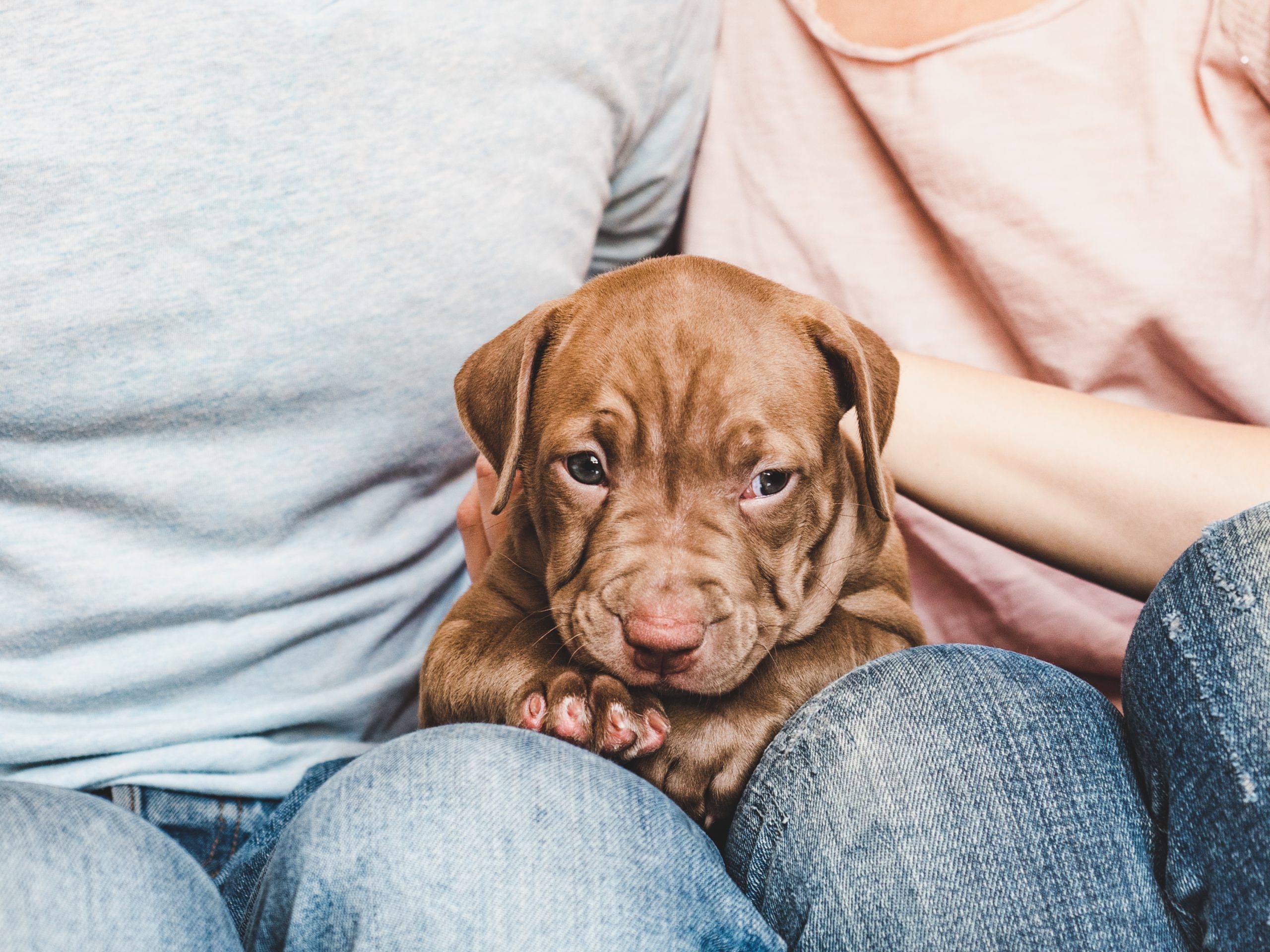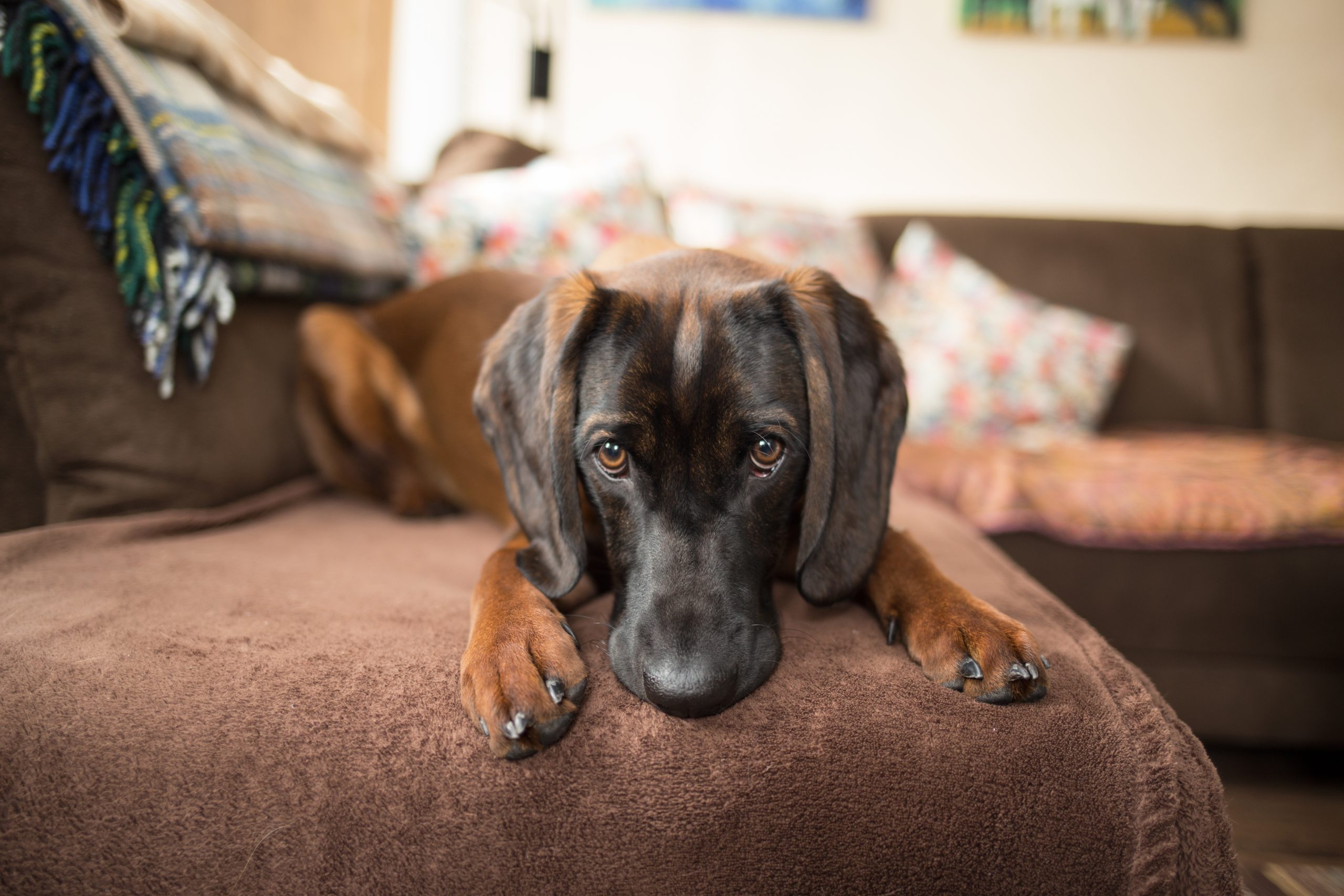
Parenting advice, hot topics, best buys and family finance tips delivered straight to your inbox.
You are now subscribed
Your newsletter sign-up was successful
Relationship splits - whether you are married or not - are always painful, complicated, and emotional.
But they can become even more fraught with emotion when dependants are involved - whether that be children or pets.
While there's plenty of advice for helping your kids through a break-up though, there's less out there for how to help a pet - be it a cat or a dog - navigate what can be a traumatic time.
And then, there's the issue of who actually gets to keep the pet dog if you and your partner split.
Who technically gets the dog in a break-up?
In a break-up, there's usually a huge amount to deal with - division of property, custody of any children, let alone the emotional fall-out.
So discussing the reality of who gets to keep your beloved pet when you split can be a hugely testing and heart-breaking addition.
It's important, if you can, to have a civil, logical conversation with your partner first about who should keep the pup. One of you may not be happy to bear the responsibility of a pet alone, so may be happy to relinquish ownership. Or, one of you may be desperate to keep the dog.
Parenting advice, hot topics, best buys and family finance tips delivered straight to your inbox.

On the other hand, one of you may be moving to a small city apartment, while the other is moving to a home in the countryside - and as such the outside space in the latter property may make it logical that the latter person takes the pet. It's always preferable to make the decision between the two of you, if you can - you don't know until you have conversation.
But what if it reaches the point where lawyers have to get involved?
According to current UK law, pets count as property, much in the same way as furniture. Online pet store My Pet Needs That, explained, "UK law regards animals as ‘personal chattel’. ‘Chattel’ is a term used in law to define personal possessions that are not considered financial assets or bricks and mortar property."
You may believe that you have a right to a relationship with your pet, but lawyers state that ownership relates to who actually bought the pet and who pays insurance for the pet, as well as other costs. So, if your partner initially bought the pet and has continued to pay sole insurance for the animal, you may not legally be entitled to keep the dog after a break-up.
MORE: Can our pets get coronavirus? How to keep our dogs and cats healthy
My Pet Needs that also revealed that ongoing costs will be considered in the decision. They said, "The judge will also assess the ongoing expenses of looking after the pet and the impact it will have on the individual’s finances. However, if a couple who is not married separates, the judge is likely to only consider who paid for the animal when it is purchased."
However, ex-couples should bear in mind that once the matter is in the courtroom, it could well be out of their hands.
"If a couple decides to take the courtroom route in their pursuit of custody, it is wise to remember that not every judge will hold sympathy for the owners. If the dog was a joint purchase and care taking tasks shared, it is not unheard of that the judge will order the sale of the pet and the money gained to be divided equally."
Should you put pet custody in a pre-nup?
This is one idea for easily managing where your pet will go should the worst ever happen.
While many choose not to have a pre-nuptial agreement before getting married, establishing a legal accord over who will look after your pet in the event of a split is a smart idea, and could save a lot of heartache, and stress for the animal, if it does come down to it.
Helping your dog adjust following your relationship split
Dogs are hugely receptive to the emotions of their humans. In fact, recent research has found that dogs can even read our emotional state from certain cues - including our facial expressions, posture, and body odour.
And many experts claim that dogs also take on our feelings too - if we're feeling flat, or excited, so are they. How many times have you been jumping up and down in excitement, and they've happily joined in?
It tracks then that, on the other side, whenever the home is full of tension, tears or arguments, your dog may well be feeling the strain too.
So how can you make sure that your pup isn't affected by any fall-out from a relationship breakdown?
Try not to disturb their routine too much, especially if they are moving home
Dogs in particular are routine-lovers - they find comfort in the normal, everyday things that define their world, such as food at a regular time, daily walks and a routine bedtime.
So try as best you can to limit upheaval for your pet pooch, even if yours and your ex-partner's routine is disturbed.
The same applies if your dog will soon be spending time in two different homes, or moving homes as a result of the split. Rhiann Hobbs, from the Animal Health Company, said, "You can make them feel at ease by slowly introducing them into their new environment, whilst keeping their normal routine the same. Keep your dog’s old toys and bed, and avoid changing meals and walking times to make your pet feel at ease in the new environment."
And if they are going to live somewhere new, Blue Cross also notes, "For dogs, it’s a good idea to slowly reintroduce them to being left on their own in your new home. With all the changes in their environment, they may find it hard to adjust in the beginning. Given time and patience, they will get back into their usual routine."
If you can, try and keep them in the home that they've always known, and if you can't, take them to places they recognise on walks to keep up a semblance of normality for them.
Make sure you don't argue in front of the dog
Just like you would if you were dealing with children, be sure not to fight in front of your pet, who may find the situation stressful.
Dogs, just like humans, can get anxiety from shouting and raised voices, and given that there's no way to reassure them, doing your best to keep them away from any kind of anger or upset could be a good idea.

Accept that your dog may have a few accidents - but be patient and help them through it
When a dog is going through a big change, they can potentially revert to behaviours that aren't normal for them.
If your dog is normally toilet-trained, they may have a few accidents in the house due to the stress. Or, if your four-legged friend is normally quiet, they may well develop an anxious bark.
The most important thing to remember is to remain patient, and remember that none of this is your dog's fault. Try and re-introduce some of the training you began when they were a puppy, and work to establish good behaviours again when emotions have calmed down.
Realise that they too may be 'grieving' - but not in the same way as us
Julie Hecht, who studies animal behaviour at the City University of New York, told The Cut that while our pets may be sad, they're not grieving the loss of the person in their home in the same way we might be.
She explained that they are possibly missing all of the things that equalled their presence more, and so a disruption to their normal sights, sounds and smells.
Julie said, "We like to talk about the missing of that person, but it’s very possible it’s more complex than that and we’re just seeing it in a very narrow way.
MORE: Does your dog have separation anxiety? Here's how to tell - and stop it, for good
"We know the person’s gone, but we’re also not remembering that, say, their sweater’s also gone. There’s other variables dogs could be picking up on,” she says. “People like to say it’s about them, and that could be part of it, but it’s not necessarily the whole story. And when we get hung up on ourselves, we could be missing what’s actually upsetting the dog."
Rhiann Hobbs said that if your pet is really struggling with the transition, there are ways to help. "You can use a hormone diffuser or calming supplement to help them feel relaxed around their new home," she explained. "Just like adults and kids, it can take dogs a while to get used to a significant change such as a break up, so make sure to be patient and look out for signs of stress during this tough time."
Amy is Senior Digital Writer across Woman & Home, GoodTo and Woman, writing about everything from celebrity news to health, fashion and beauty features. When she isn't obsessing over the latest dress drop from Marks & Spencer, you'll most likely find Amy out running, or with a cup of tea in hand ready to dive into a gripping new Netflix series.